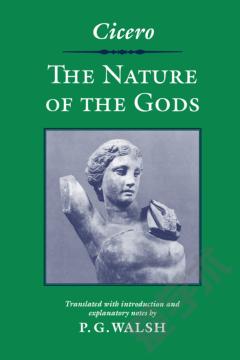The Nature of the Gods
Cicero's philosophical works are now exciting renewed interest and more generous appreciation, in part because he provides vital evidence of the views of the (largely lost) Greek philosophers of the Hellenistic age, and partly because of the light he casts on the intellectual life of first-century Rome. Hellenistic philosophy has in recent years atrracted growing interest from academic philosophers in Europe and North America. The Nature of the Gods is a document of central significance in this area, for it presents a detailed account of the theologies of the Epicureans and of the Stoics, together with the critical objections to these doctrines raised by the Academic school. hen these Greek theories of deity are translated into the Roman context, a fascinating clash of ideologies results.
{{comment.content}}








 京公网安备 11010802027623号
京公网安备 11010802027623号